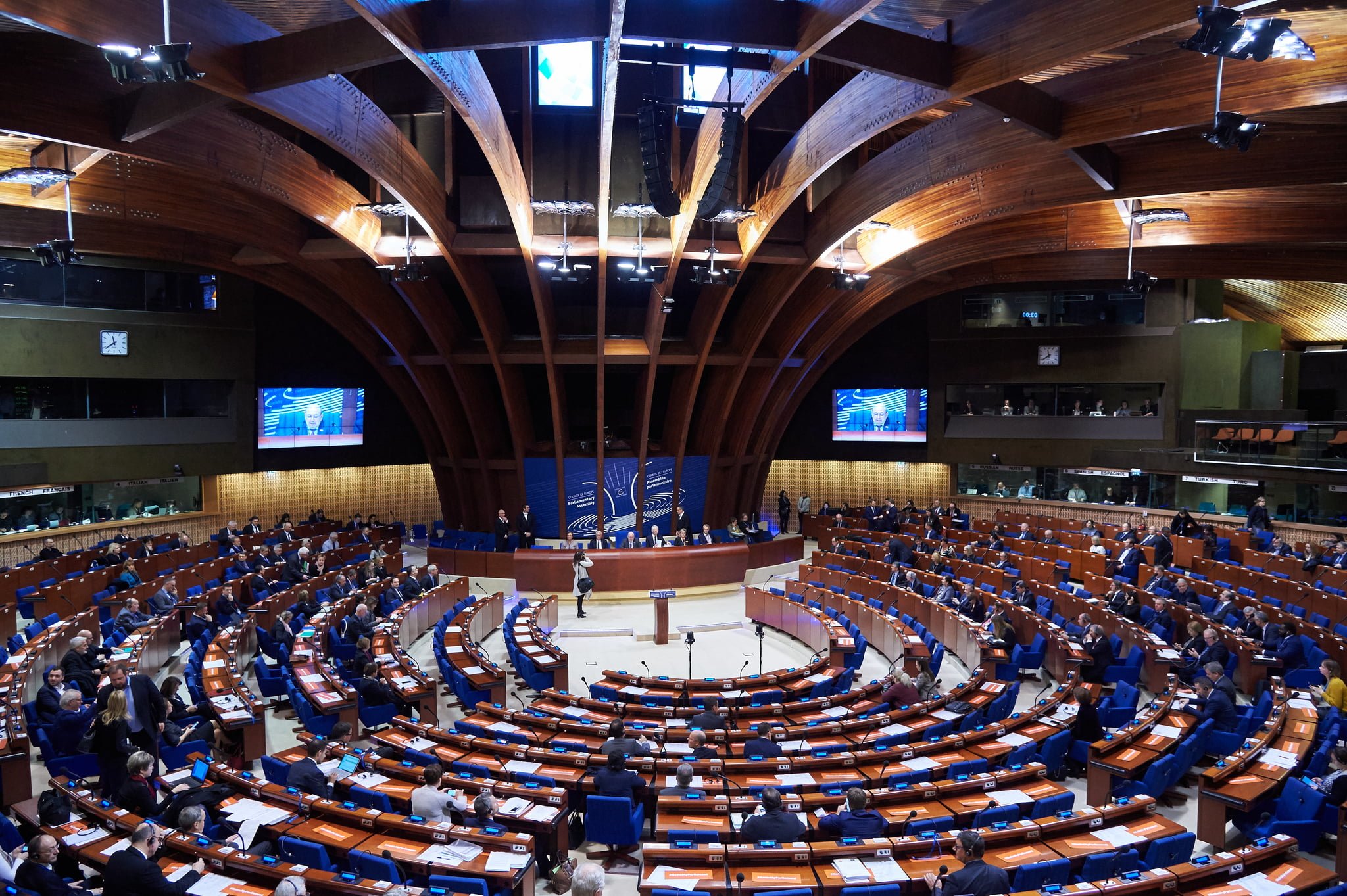
Parliament Speaker Accused of Concealing CoE HR Commissioner’s Letter on Foreign Agents Law
In a letter to Parliament Speaker Shalva Papuashvili dated April 11, which surfaced in the media on April 16, Council of Europe Commissioner for Human Rights Michael O’Flaherty asks members of the Parliament “to refrain from adopting the so-called Foreign Agents’ law” and engage with the national and international partners on how best to ensure and enabling working environment for CSOs. The seriousness of the concerns expressed in the letter is underscored by the request that it be circulated to all members of Parliament. It appears, however, that the letter has not been circulated among the MPs.
Contrary to the Commissioner’s request to distribute the letter to all members of parliament, the Speaker apparently did not disclose the letter and was accused on April 16, during the parliamentary plenary session, by MP Ana Natsvlishivil of Lelo of deliberately concealing it and lacking transparency.
CoE HR Commissioner’s Letter
The Commissioner highlights the potential human rights implications of the bill, stressing the importance of freedom of association and expression. He cites the jurisprudence of the European Court of Human Rights (ECHR) and the recommendations of the Committee of Ministers. The letter underlines the need to preserve the independence and diversity of civil society organizations and media citing ECHR (the Court) case Ecodefence and others vs. against Russia, which says that “the diversity of the funding sources may enhance the independence of the recipients of such funding in a democratic society.”
One of the main concerns raised by the Commissioner relates to the necessity and proportionality of the measures proposed in the draft law, as well as possible discriminatory effects based on funding sources. He notes the possible stigmatization and discrediting of CSOs and media outlets that receive foreign funding. The Commissioner notes that “transparency should not be sought through disproportionate means and to the detriment of the effective enjoyment of human rights and freedoms.”
The Commissioner writes: “I also find that the term “organization pursuing the interest of a foreign influence” – which is used in the draft law- implies a high level of dependence and control between the organization which receives foreign funding and the donor organization. This does not seem to correspond to the requirement of receiving – directly or even indirectly- only over 20% of the total yearly income from abroad.”
The Commissioner adds that “this designation should also be seen against the background of an increasing stigmatization of human rights and other NGOs in political discourse in Georgia.”
The Speaker’s Response
On April 16, in a letter responding to the Commissioner’s letter, Speaker Papuashvili brushes aside all the concerns raised in Commissioner O’Flaherty’s letter and instead emphasizes the bill’s “commitment to increasing transparency” as “a fundamental aspect of democracy.
Shalva Papuashvili claims that the draft law is in line with European human rights standards, saying that the law will counter foreign influence while respecting fundamental rights, including freedom of association and expression. He dismisses the concerns about the law saying that “the draft law introduces the only obligation of an annual declaration of funding” and brushes aside the Commissioner’s concern about the possible stigmatization of non-governmental organizations, saying that it has been “addressed by dropping the term ‘foreign agent’ in favor of ‘organization pursuing the interest of a foreign influence.”
Papuashvili writes: “One of the main reasons we repealed this law last year was an agreement and understanding that both Georgian as well as foreign organisations would open up their funding and provide this information proactively.” He then notes: “We tried to partner with major donor organisations on voluntary basis, but, despite our attempts, the situation worsened.” He goes on to justify the law by claiming that “the unfortunate reality in Georgia is that certain non-profit organisations continue to evade transparency requirements and covertly influence political, economic and security processes.”
The Speaker defends the bill, citing “the minimal and non-cumbersome reporting requirements imposed by the law” and claiming its proportionality “compared to similar legislation in other countries.” He maintains that “the draft law will raise the level of responsibility and accountability” of the CSOs noting it has been shaken “due to scandals with meddling in politics”.
Papuashvili also claims that the law will thus increase the trust towards CSOs among the public, as well as “ameliorate the integrity of the political and electoral system in Georgia and allow more inclusive participation of non-profit organizations in public policy-making.”
.
This post is also available in: ქართული Русский